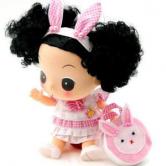Today we explain proverbs.
A proverb is a short, well-known saying that expresses a common truth or belief. Proverbs are popular around the world. Many proverbs give advice about how to live. Some proverbs are hundreds of years old, but they are still used today.
For example, my son is just like his father in many ways. We often say the two of them prove the proverb that the apple does not fall far from the tree.
My daughter is very short. She would like to be taller.But I tell her that good things come in small packages. The size of something is not always important.Some valuable things are very small, like diamonds and other jewels.But I also tell my children that all that glitters is not gold. Do not befooled by appearances.
Something may look valuable, but may not really be valuable. Also, I tell them do not judge a book by its cover. You should not judge something only by its appearance.
Another proverb is, do not bite off more than you can chew. This means do not try to do more than you are able to do.
Some times I tell my children to cooperate to solve a problem. After all, two heads are better than one. Two people working together can get better results. But another proverb says too many cooks spoil the broth. If too many people try to do something, then the job will not be done well.
I also tell my children that two wrongs do not make a right.You should not do something bad just because someone did the same to you.
Some people are pessimists: they always think about how bad things are or will be. Other people are optimists: they always look on the bright side.They think things will be all right.
Optimists might say that every cloud has a silver lining. They can find something good even in a bad situation. Other people are both pessimists and optimists.They hope for the best and prepare for the worst.
Some people often worry about what they will do in a situation that might happen in the future. We could tell them do not cross that bridge until you come to it.
It is usually much better to prevent a problem from happening than it is to find ways to solve it. So we say an ounce of prevention is worth a pound of cure.
Finally, I always liked this proverb: You can catch more flies with honey than with vinegar. Honey is sweet while vinegar is not.In other words, you can win people to your side more easily with gentle persuasion than by hostile actions
今天我们讲述谚语。
谚语一般是比较简短,众所周知的说法,用来表达人所共知的事实或信仰。谚语在世界上很流行。许多谚语提供生活哲理。有些谚语已有上百年的历史,而今仍然广为使用。
比方说,我的儿子在很多方面和他父亲很像。我们常说他们两个验证了“有其父,必有其子”(apple does not fall far from the tree)这个谚语。
我的女儿身材矮小。她想要长高点。但我告诉她“浓缩的是精华”(good things come in small packages)。事物的大小不总是重要的。像钻石和其他珠宝,一些贵重的东西体积很小。但我还告诉孩子们发光的并不一定是金子(all that glitters is not gold)。不要被外观所欺骗。
某些东西可能看起来很有价值,但可能不是有真正的价值。而且,我告诉他们“不要以貌取人”(do not judge a book by its cover)。不该仅从外观上判断事物。
另一个谚语是“贪多嚼不烂”(do not bite off more than you can chew),意思是不要承担自己的能力完成不了的事情。
有时,我告诉孩子们相互合作,解决问题。毕竟“三个臭皮匠,顶个诸葛亮”(two heads are better than one),两个人一起工作能取得更好的成果。但另一个谚语讲到,“人多事乱”如果太多人想要做某件事,可能做不好。
我还告诉我的孩子,“两个错误不等于一个正确”(two wrongs do not make a right),你不能因为别人曾对你做不好的事情,你也以其人之道还治其人之身。有些人是很悲观:他们总认为事情非常糟糕或是将会是多糟。
有些人很乐观:他们总是看到好的一面。他们认为事情会好的。
乐观的人可能说“黑暗中总有一丝光明”。他们会在艰难的境遇中发现美好。一些人既是悲观者又是乐观者,他们“抱最好的希望,做最坏的打算” 。
一些人常常会因为考虑如何应对将来可能发生的情况而忧心。我们可以告诉他们“车到山前必有路”(do not cross that bridge until you come to it) 。
在开始前就预防问题发生总比发生后想办法解决问题好得多。所以我们说“一分预防相当于十分治疗”(an ounce of prevention is worth a pound of cure) 。
最后,我最喜欢“用蜜比用醋能捉到更多的苍蝇”这个谚语。蜜糖是甘甜的而醋不是,换句话说,与敌对的行为相比,温和的劝说更能赢得人们的支持。
A proverb is a short, well-known saying that expresses a common truth or belief. Proverbs are popular around the world. Many proverbs give advice about how to live. Some proverbs are hundreds of years old, but they are still used today.
For example, my son is just like his father in many ways. We often say the two of them prove the proverb that the apple does not fall far from the tree.
My daughter is very short. She would like to be taller.But I tell her that good things come in small packages. The size of something is not always important.Some valuable things are very small, like diamonds and other jewels.But I also tell my children that all that glitters is not gold. Do not befooled by appearances.
Something may look valuable, but may not really be valuable. Also, I tell them do not judge a book by its cover. You should not judge something only by its appearance.
Another proverb is, do not bite off more than you can chew. This means do not try to do more than you are able to do.
Some times I tell my children to cooperate to solve a problem. After all, two heads are better than one. Two people working together can get better results. But another proverb says too many cooks spoil the broth. If too many people try to do something, then the job will not be done well.
I also tell my children that two wrongs do not make a right.You should not do something bad just because someone did the same to you.
Some people are pessimists: they always think about how bad things are or will be. Other people are optimists: they always look on the bright side.They think things will be all right.
Optimists might say that every cloud has a silver lining. They can find something good even in a bad situation. Other people are both pessimists and optimists.They hope for the best and prepare for the worst.
Some people often worry about what they will do in a situation that might happen in the future. We could tell them do not cross that bridge until you come to it.
It is usually much better to prevent a problem from happening than it is to find ways to solve it. So we say an ounce of prevention is worth a pound of cure.
Finally, I always liked this proverb: You can catch more flies with honey than with vinegar. Honey is sweet while vinegar is not.In other words, you can win people to your side more easily with gentle persuasion than by hostile actions
今天我们讲述谚语。
谚语一般是比较简短,众所周知的说法,用来表达人所共知的事实或信仰。谚语在世界上很流行。许多谚语提供生活哲理。有些谚语已有上百年的历史,而今仍然广为使用。
比方说,我的儿子在很多方面和他父亲很像。我们常说他们两个验证了“有其父,必有其子”(apple does not fall far from the tree)这个谚语。
我的女儿身材矮小。她想要长高点。但我告诉她“浓缩的是精华”(good things come in small packages)。事物的大小不总是重要的。像钻石和其他珠宝,一些贵重的东西体积很小。但我还告诉孩子们发光的并不一定是金子(all that glitters is not gold)。不要被外观所欺骗。
某些东西可能看起来很有价值,但可能不是有真正的价值。而且,我告诉他们“不要以貌取人”(do not judge a book by its cover)。不该仅从外观上判断事物。
另一个谚语是“贪多嚼不烂”(do not bite off more than you can chew),意思是不要承担自己的能力完成不了的事情。
有时,我告诉孩子们相互合作,解决问题。毕竟“三个臭皮匠,顶个诸葛亮”(two heads are better than one),两个人一起工作能取得更好的成果。但另一个谚语讲到,“人多事乱”如果太多人想要做某件事,可能做不好。
我还告诉我的孩子,“两个错误不等于一个正确”(two wrongs do not make a right),你不能因为别人曾对你做不好的事情,你也以其人之道还治其人之身。有些人是很悲观:他们总认为事情非常糟糕或是将会是多糟。
有些人很乐观:他们总是看到好的一面。他们认为事情会好的。
乐观的人可能说“黑暗中总有一丝光明”。他们会在艰难的境遇中发现美好。一些人既是悲观者又是乐观者,他们“抱最好的希望,做最坏的打算” 。
一些人常常会因为考虑如何应对将来可能发生的情况而忧心。我们可以告诉他们“车到山前必有路”(do not cross that bridge until you come to it) 。
在开始前就预防问题发生总比发生后想办法解决问题好得多。所以我们说“一分预防相当于十分治疗”(an ounce of prevention is worth a pound of cure) 。
最后,我最喜欢“用蜜比用醋能捉到更多的苍蝇”这个谚语。蜜糖是甘甜的而醋不是,换句话说,与敌对的行为相比,温和的劝说更能赢得人们的支持。
[ 此贴被园长509在2010-04-04 18:28重新编辑 ]

